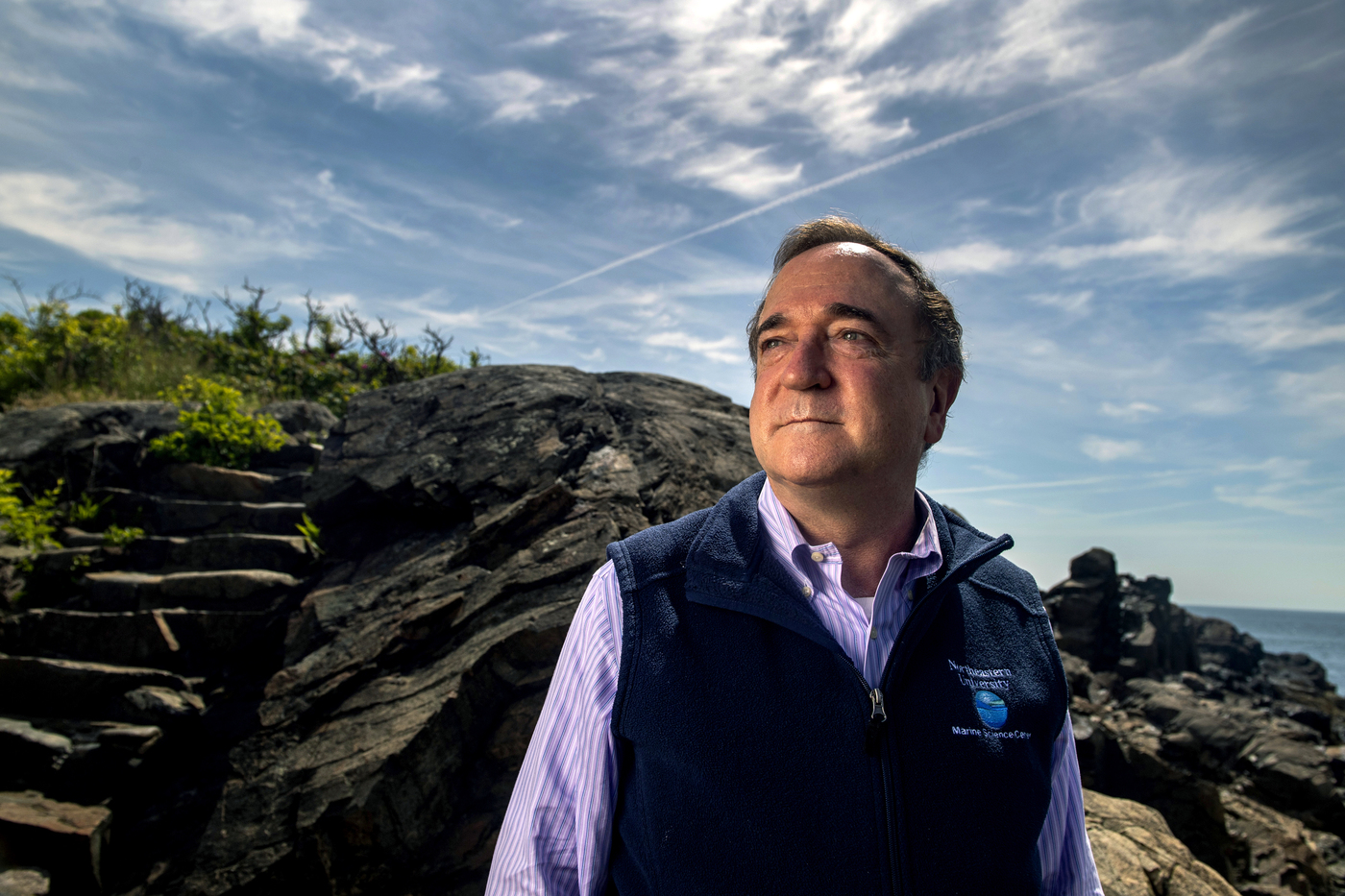Dr. H. William Detrich III, professor of marine and environmental sciences, has retired after a distinguished 34-year career at Northeastern University. Dr. Detrich’s innovative research and teaching have made him a valued colleague, collaborator, and mentor to those in the College of Science and beyond.
Dr. Detrich received his PhD from Yale University in 1979 and joined the College of Science as an assistant professor in 1987. He brought to his work a broad and deep background in biochemistry, molecular biology, and genomics.
In 1984, he became Principal Investigator for the United States Antarctic Program and has conducted more than 15 research expeditions to U.S. Antarctic research stations, including Palmer and McMurdo Stations. His research there has contributed valuable insights into the impacts of climate change in Antarctica and was further recognized in 2016 when an island just north of Palmer Station in Antarctica was named in his honor.
Dr. Detrich has a prolific body of work; he has been awarded 17 NSF awards as Principal Investigator and has published extensively in PNAS, Nature, and other highly rated journals. His research has led to international collaborations examining the evolutionary history and genome of the Antarctic icefish, whose loss of red blood cells and other unique adaptations have fascinated scientists and the media alike. He worked with an international team to sequence the first genome of an Antarctic notothenioid fish – the Antarctic Bullhead notothen – shedding light on the animal’s unique adaptation to freezing waters. His DNA contributions led to the full sequencing of the channel bull blenny, part of a groundbreaking collection of papers in Nature this past year on the Vertebrate Genomes Project.
He has worked extensively to advance the visions and goals of Antarctic research as a whole. His appointment in 2020 to the National Academy of Sciences Polar Research Board Committee on A Mid-Term Assessment of NSF Progress contributed to the publication of a new report highlighting and directing the strategic vision for the Antarctic and Southern Ocean Research into the future. He worked with the Polar Research Board to draft the proposal to protect two Sites of Special Scientific Interest near the Antarctic Peninsula: Western Bransfield Strait and Eastern Dallman Bay.
In addition to his research work, Dr. Detrich has been a supportive and inclusive teacher and mentor to many students. He was an innovative and beloved instructor for undergraduates and graduate students, fostering a love of the biological sciences through experiential and lab-based coursework. In 2010, he orchestrated the first-ever Antarctic co-op for then biochemistry student Corey Allard, who joined the McMurdo field season to investigate the impact of warming seas in the South Polar Ocean on embryonic development in Antarctic fish. He went on to mentor many students, including Jeriyla Kamau-Weng, who conducted genetic research on zebrafish, and postdocs, including Dr. Jake Daane, who continues the team’s NSF-funded work on notothenioids in his lab at the University of Houston.
He has also been an active collaborator with the Marine Science Center’s Outreach Program, whether it was zooming in from the field to local elementary classrooms, introducing his research to underrepresented students, or welcoming high school program students to his lab for tours and views of icefish.
“Over the 20+ years that I have known Bill, I have always been amazed by his outstanding scholarship, which transcends many disciplines, from molecular biology and physiology to the evolution of adaptation,” says Marine and Environmental Sciences Academic Chair Geoff Trussell. “His significant contributions to our understanding of Antarctic systems will shape research for decades to come. We will miss Bill’s inspiring presence in our community and wish him the very best in retirement!”
Dr. Detrich’s influence as a scientist and mentor will contribute to the field long after his retirement.

